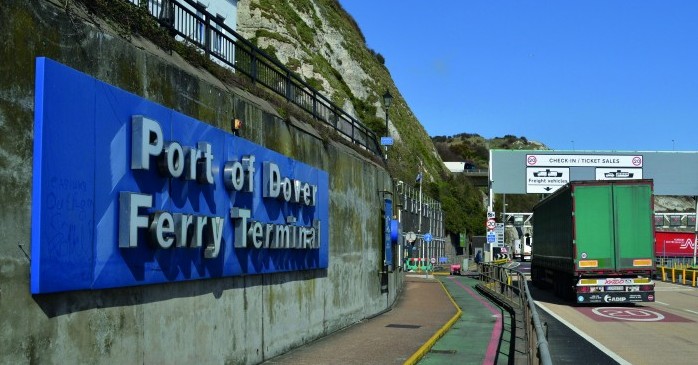The Government has confirmed that it is to delay the introduction of checks on food imports from the EU for a fifth time.
The move, which had been reported in the national media at the start of August, has prompted warnings from the NPA that the lack of controls exposes the UK pig sector to an increased risk of African swine fever, which continues to circulate in Europe.
In an update on its Border Target Operating Model, the Government says the implementation has been pushed back from this October to January 2024.
It said industry feedback from workshops and seminars ‘welcomed many of the innovative elements of the model, and the importance of implementing robust security and biosecurity controls’. “Vets and the agricultural sector recognised the growing threat from animal and plant disease, such as African Swine Fever & Xylella fastidiosa, the potential economic and environmental consequences of these threats, and the importance of robust controls to combat them,” it added.
“However, businesses and the border industry highlighted where further detail was needed to prepare for the model, and set out a range of challenges that implementation of the new model would present. These were focussed both on new complexity and cost that would be introduced into the supply chain, as well as the timing of the introduction of new controls. In particular, businesses highlighted that their supply-chains would need time to adapt to new controls.
“In response to this feedback we have decided to push back some of the implementation milestones for the Border Target Operating Model in order to give businesses more time to prepare. We will implement the Border Target Operating Model from January 2024 onwards, beginning with the introduction of health certification on relevant EU goods.
“This will bring the launch of the Border Target Operating Model closer to the upcoming simplification of border requirements through the new UK Single Trade Window.”
New controls on UK meat exports to the EU have been in force ever since the UK formally left the EU in January 2021. But the promised equivalent checks in the UK were repeatedly delayed until, finally in in April last year, the Government said it would not be introducing any checks until a new digital system was in place.
This April, the government announced that draft Border TOM would be phased in over the course of a year, starting with the introduction of health certification on imports of medium risk animal and plant products from October 31.
ASF risk
NPA chief policy adviser Charlie Dewhirst said: “Whilst we understand the Government’s reasoning, this is now the fifth delay in implementing physical checks on goods entering the country, the lack of which is exposing the UK to potentially devastating notifiable diseases like African swine fever.
“ASF is a concern that both the Defra Secretary and Farming Minister have highlighted in recent months and is clearly identified as a threat in the Government’s own Border Target Operating Model documentation published today.”
Indeed, the document includes a case study, which notes that an ASF outbreak ‘would be a fundamental threat to the viability of our pig industry’.
While Britain is free of African Swine Fever, it is widespread in some other parts of the world, including both EU and non–EU countries on the European Continent. Recent routine inspection of retail shops by local authorities in the UK detected frozen, raw and uncooked meat products marked clearly as suitable only for sale in the originating country.
“Further investigations found these products had been purchased by two iimporters, linked to over 280 retail outlets in the UK. These products were exported commercially, and properly pre-notified on the UK imports system. Although the products didn’t test positive for African Swine Fever on this occasion the very fact that these
products reached the UK presents a serious and immediate threat to the UK pig industry.
These goods would not have made it to the UK if Sanitary and Phytosanitary controls had been in place because they would not have been certified for export by a veterinarian in the originating country.”
Responding to initial reports of a delay in early August, British Veterinary Association President Malcolm Morley said: “News that the Government may be once again delaying the introduction of crucial border checks on goods entering the UK is extremely frustrating and is putting the UK’s biosecurity at serious risk of imported diseases like African Swine Fever.
“Government vets are doing an unwavering job to mitigate these threats but without proper border controls from the EU in place, they are effectively doing the job with one hand tied behind their backs. The British Veterinary Association urges the Government to urgently press ahead with introducing the checks or risk the safety and security of our agricultural industry, food security and UK public health.”




